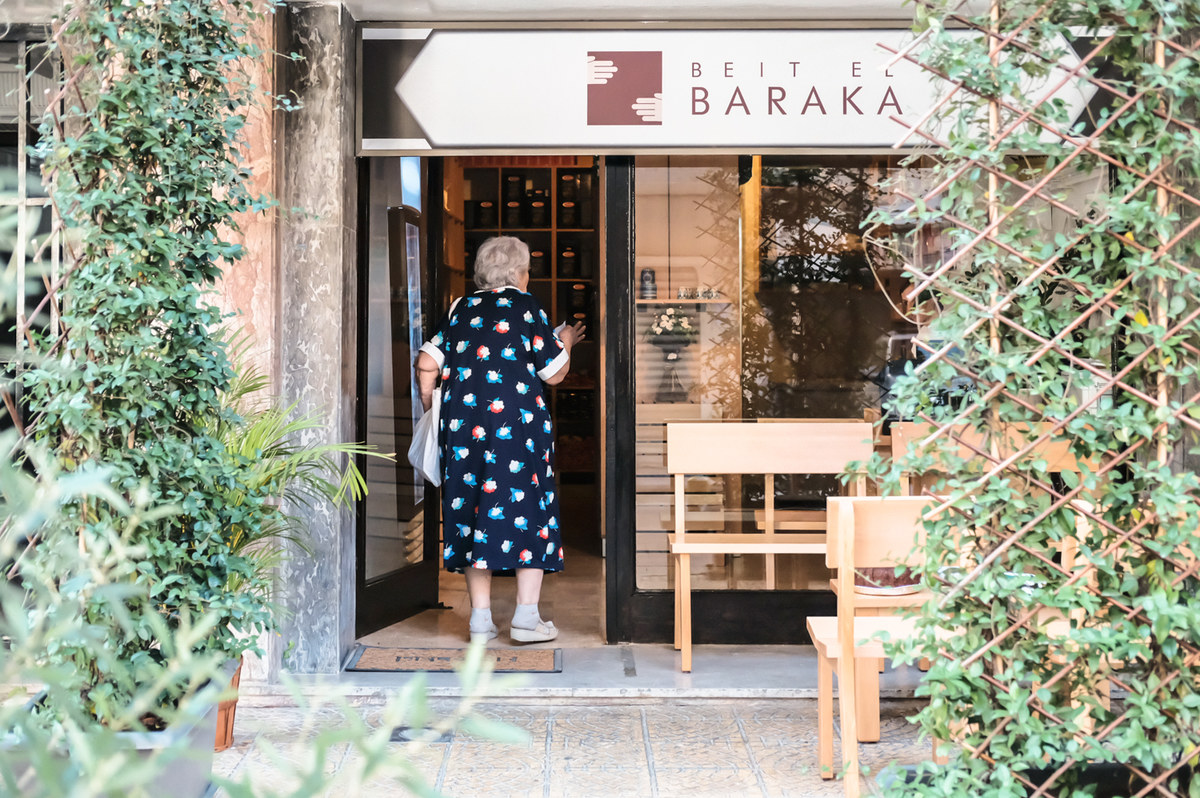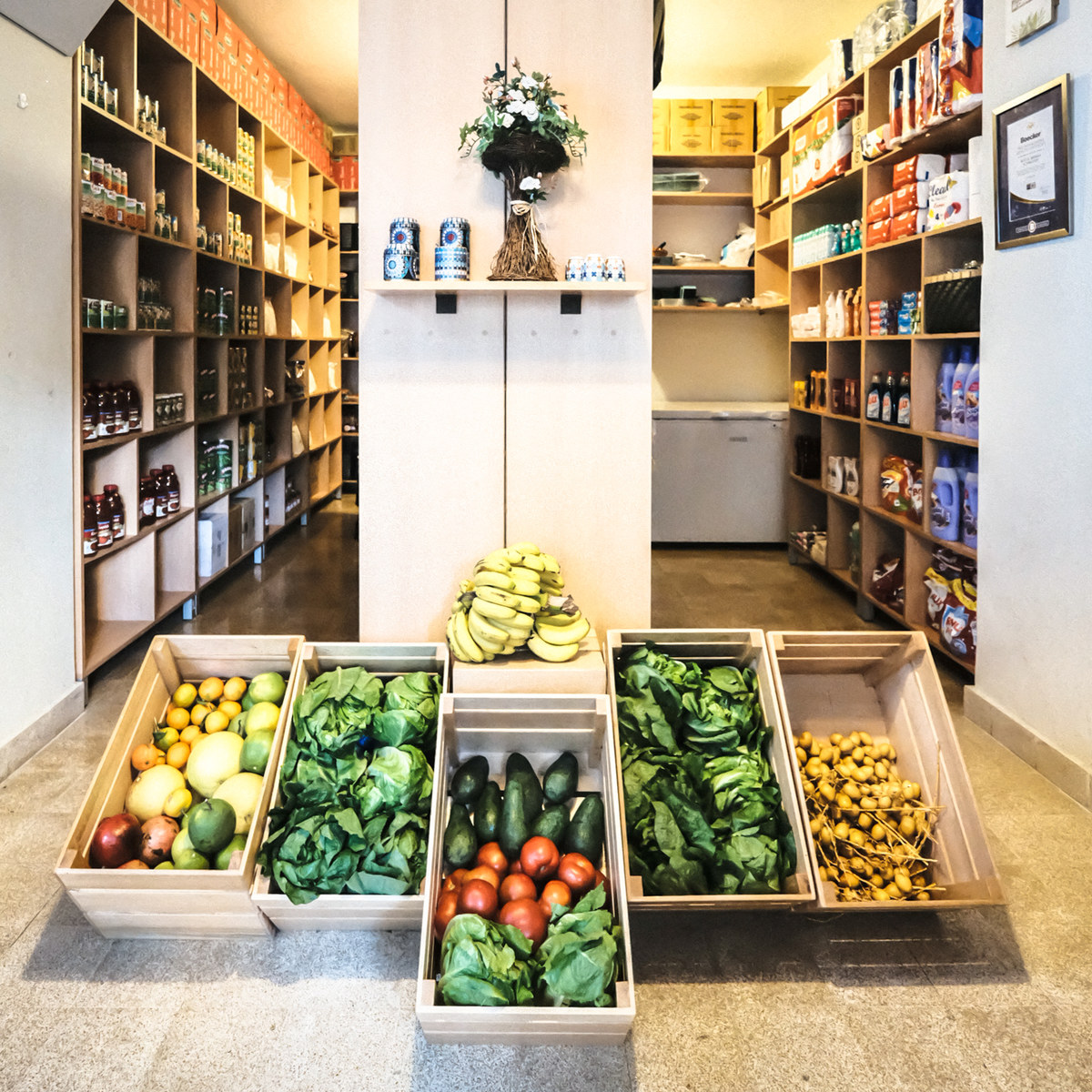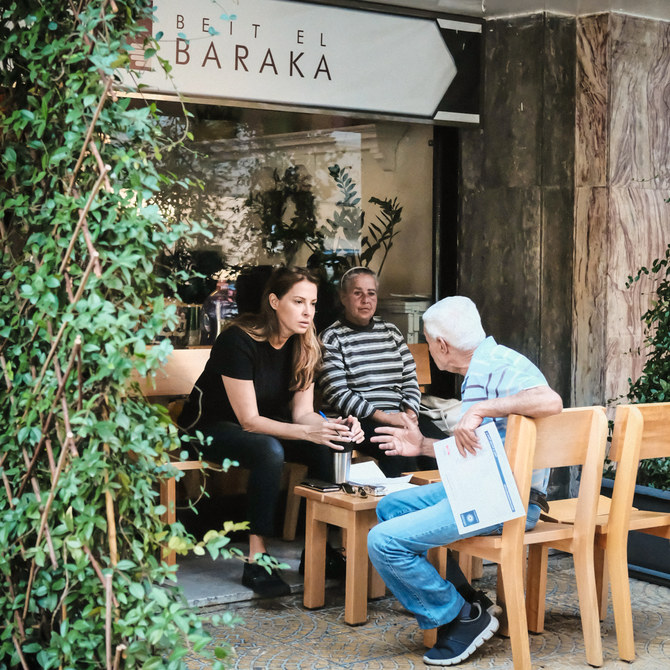DUBAI: Beit El Baraka, which means “house of blessings” in Arabic, is a nonprofit organization in Beirut that is living up to its name in a time of crisis.
It was launched by Maya Chams Ibrahimchah last year to offer a helping hand to elderly and retired people abandoned by the state. More recently, it has been providing a lifeline to cash-strapped families struggling to survive amid Lebanon’s economic collapse.
Beit El Baraka chiefly operates through its free supermarket in the capital’s Karm El-Zeitoun neighborhood. The store provides a friendly and accessible environment for the 1,012 people it serves each day. The August 4 explosions in Beirut, while causing temporary disruptions, have not dimmed the spirit of altruism of the NGO’s founder.
“Two factors are important to us: dignity and security,” said Ibrahimchah, a graduate of the American University of Beirut. “When someone visits us, it’s like entering a person’s home. Usually, a home is a place where you feel safe. Your family is supposed to treat you with kindness, respect you as a citizen with rights, and support you.”
A communications expert and heritage-preservation activist, Ibrahimchah said the decision to set up a charitable organization was sparked by distressing daily encounters with poverty resulting from failing, bankrupt government institutions caught in a perfect storm of crises.
She recalled the day she decided to do something. She met a woman with years of experience as a French teacher, who had lost her home and was sitting in the street surrounded by her few remaining possessions: some suitcases and boxes of books.
“How can someone so educated just end up on the streets?” asked Ibrahimchah. After finding shelter for the woman, she and the teacher spent time together and began to research Lebanese retirement laws and pension plans. They were dismayed to discover how little retirees receive as end-of-service benefits after many years of hard work.
An International Monetary Fund report published in 2016 found Lebanon to be the only country in the Middle East and North Africa region that lacks a social security system for retirees from the private sector, who lose their benefits and health coverage when their service ends.
The country also has the highest percentage of people still working past the age of 65 to pay their bills as the cost of living keeps rising.
Another incident that left its mark on Ibrahimchah was a visit to an apartment where a couple lived by candlelight in the evenings because they had been without electricity for eight years.
“These are things that you’re not supposed to see in the 21st century,” she said. “It’s not just shameful, it shows a lack of dignity from our leaders.
“The Lebanese people are educated, cultured and known for their resilience — they fall and rise again. We have 5,000 years of history in Lebanon and we’re one of the oldest countries in the world. How can a country that has endured so much and become all that it’s become be reduced to this level of misery?”
A woman on a mission, Ibrahimchah opened Beit El Baraka’s free supermarket in February 2019. It works on a system based on points rather than money: younger retirees are encouraged to work with Beit El Baraka, interacting with others and gaining points by cooking, delivering food to the older beneficiaries, and offering assistance in their homes.
THENUMBERS
Lebanon’s economic crisis
- 190% rise in food costs in May compared with a year earlier.
- 172% increase in clothing costs during the same period.
- 80% loss in value of the Lebanese pound in recent weeks.
“In this way we are building a community where people work,” Ibrahimchah said. “We’re trying to change the perception of poverty. The people that come to our shop look like you and me. They are not poor, they have been impoverished, which are two very different concepts.”
Many elderly people in Lebanon have been neglected, leading some to attempt suicide, a problem that Ibrahimchah said is as “taboo” in Lebanese society.
“We were able to find a lot of them and we resolved their issues,” she said. “It was very simple; they just needed to feel that their lives mattered. So, we make them work, no matter how old they are. They wake up in the morning with so much happiness because they have a task to do and other people to help.”
Thanks to contracts with some of Lebanon’s biggest corporations, the shelves of Beit El Baraka’s supermarket remain stocked with a wide range of food and products.
“What was important for me was that people have freedom of choice,” said Ibrahimchah, explaining the idea behind the store. “When you tell someone to choose what they want, you’re giving them freedom, which means you’re giving them dignity.”
The environmentally friendly store does not use plastic bags; instead shoppers are given a large, reusable jute bag. They can choose from bread, eggs, rice, dairy products, canned food, cooking oil, locally grown fruit and vegetables, meat, poultry and household products, including sanitary items for women. Select chocolates and gluten-free foods are also available.
Although the supermarket was forced to close during the coronavirus lockdown, Beit El Baraka’s volunteers ensured its beneficiaries did not go without. In partnership with the Lebanese Food Bank, they delivered boxes and bags packed with food and other items to the homes of clients. Face masks and hand sanitizers were also supplied.
As the economic crisis wreaks havoc on the lives of many in Lebanon, Ibrahimchah is focusing on helping the families in greatest need. In addition to operating the supermarket, Beit El Baraka’s team also refurbishes homes and provides replacement furniture, and arranges medical treatment for people suffering from cancer, diabetes, osteoporosis and other conditions.
Beit El Baraka has expanded its operations in response to the sharp increase in demand for emergency assistance in the wake of the Beirut blast. Volunteers have set up a relief center in the capital and fanned out to different neighborhoods. Among its targets are raising $3 million in donations and rehabilitation of more than 3,000 destroyed homes and shops.

Beit El Baraka chiefly operates through its free supermarket in Beirut’s Karm El-Zeitoun neighborhood. (Supplied)
For a relatively young organization, Beit El Baraka’s achievements are impressive: 55 homes refurbished, 356 patients treated, 93 rents paid, 128 water and electricity bills paid. This has been done with the help of 25,712 donors and 212 young volunteers. The charity has also been endorsed by Google, Benevity and the Bill & Melissa Gates Foundation.
Agriculture is at the heart of Beit El Baraka’s undertakings. Ibrahimchah said that local crop cultivation falls far below its full potential in Lebanon. The country’s soil is fertile and 64 percent of land is arable, yet studies show that agriculture contributes only 5 percent of the country’s GDP, and more than 80 percent of food and beverages are imported.
Ibrahimchah said that a “miracle” happened when a woman donated more than 250,000 square meters of land to Beit El Baraka. It is now being used as a sheep and chicken farm, producing dairy products, poultry meat and eggs that are stocked by the supermarket. Thanks to additional generous donations, the organization has been gifted more land on which to grow a wide variety of fruits and vegetables.

Beit El Baraka was launched by Maya Chams Ibrahimchah last year to offer a helping hand to elderly and retired people abandoned by the state. (Supplied)
All of Beit El Baraka’s activities are funded by donations from businesses and individuals around the world. As the organization grows and helps more people, it encounters a “vicious circle” of funding, said Ibrahimchah
“The more demand you have, the more you need funds,” she said. “The more funds you get, the greater the demand becomes. It’s important to highlight the fact that NGOs that are growing are not just growing financially; they’re growing in terms of need too.”
The work of Beit El Baraka has touched the lives of 180,000 people in 62 areas in Lebanon so far. Despite the crippling economic crisis in the country, Ibrahimchah remains hopeful for the future of her people and, most of all, grateful for the meaningful friendships she has formed in the past two years.
“The retirees that we help are our blessing,” she said. “They have changed our lives and give us so much happiness. Today, I have 100,000 new friends and they have wonderful stories. You listen to them and they take you back to a time when Lebanon was the Lebanon that I wish I knew.”
--------------------------
Twitter: @artprojectdxb





























